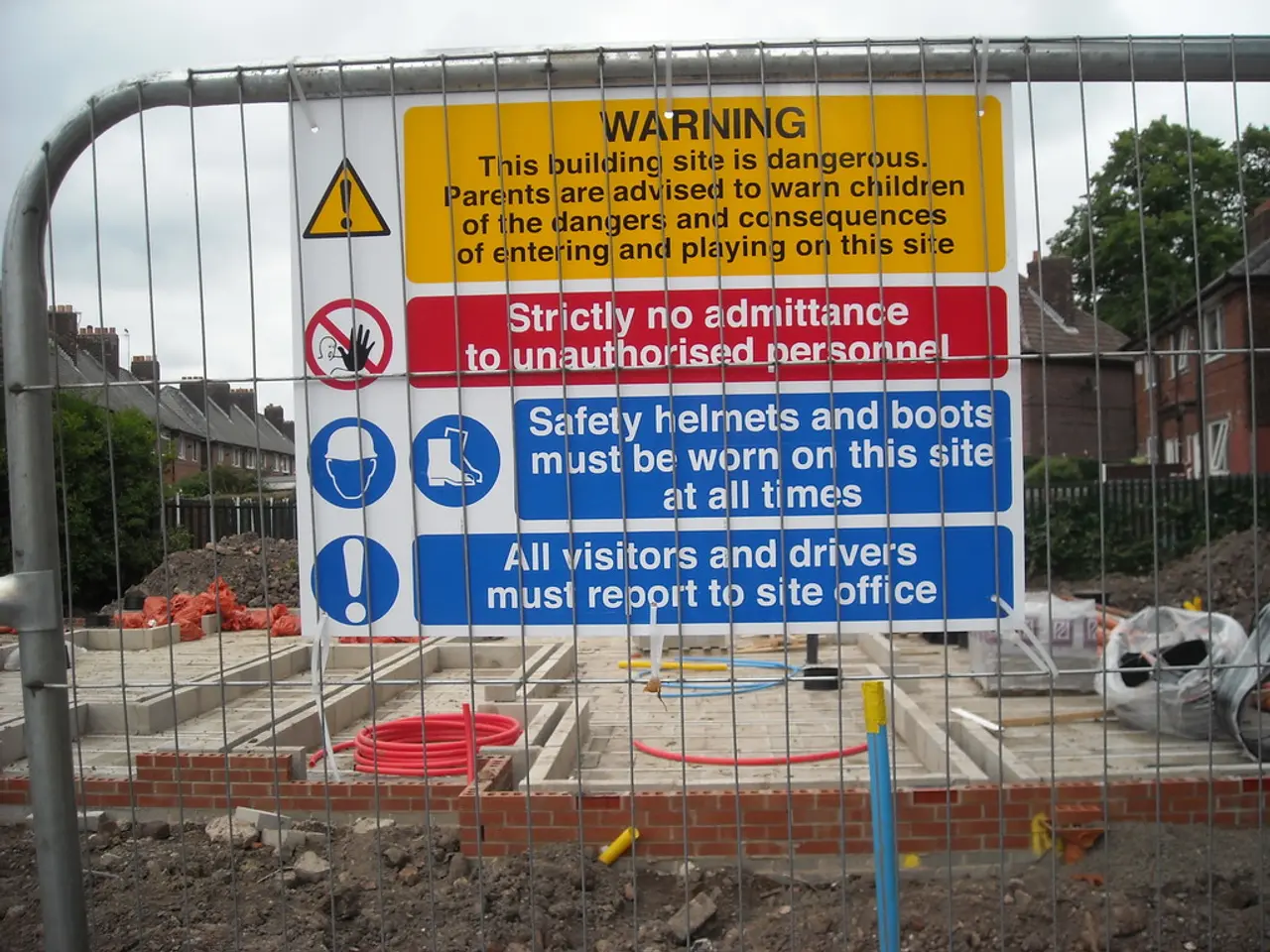Developer Bellway expands its land acquisitions - laments delays in local authorities granting planning approvals
Bellway, a leading UK housebuilder, has reported a significant increase in housing completions for the year ending 31 July 2025. The company completed 8,749 homes, marking a 14.3% rise from the previous year, with an average selling price of £316,000 per home. This strong performance has boosted buyer confidence, according to Robinhood UK lead analyst Dan Lane, as indicated by Bellway's healthy order book.
Bellway's shares have also seen a 3.3% rise since the start of the year, and the company's market value has returned to where it was in 2015, dividends aside, according to the same analyst. The company's cash position is also better, and it has a strong dividend cover, as per Robinhood UK.
Bellway's private reservation rate per outlet per week, including bulk sales, was 0.57, up 11.8% year-on-year. The forward order book stands at 5,307 homes with a value of £1.52 billion, up from 5,144 homes valued at £1.41 billion last year. The company's underlying operating margin is forecast to 'approach' 11%.
However, Bellway has identified several challenges that local authorities face in implementing planning reform to meet the Government's new home targets. One of the key issues is the delay in granting housebuilding permissions due to approximately 70% of local planning authorities (LPAs) lacking an up-to-date local plan at the start of the recent financial year. This leads to delays in development and more poorly planned development, as LPAs struggle to meet faster examination and adoption deadlines under new reforms.
Another issue is the involvement of planning committees in decision-making. Current proposals under the Planning and Infrastructure Bill maintain planning committee call-in powers for developments on sites allocated in local plans, which can cause significant delays and rejections. Bellway and other stakeholders argue for exempting these developments from committee input to reduce delays and encourage more development.
Resource and capacity issues also pose a challenge to the planning system. Delays stem from systemic issues such as workforce shortages and rising costs, exacerbating the difficulty for LPAs to keep pace with accelerated reform targets.
Lastly, coordinating across agencies and ensuring early resolution of environmental and infrastructure issues remains a challenge to avoid project delays. Despite these challenges, Bellway expects to report full-year housing revenue growth of 17% to over £2.76 billion and plans to increase its volume output to around 9,200 homes in FY26.
[1] Local plan coverage delays
[2] Planning committee involvement
[3] Resource and capacity issues
[4] Environmental and infrastructure coordination
[5] Planning and Infrastructure Bill
[1] The lack of up-to-date local plans among 70% of local planning authorities (LPAs) is causing delays in granting housebuilding permissions, hampering Bellway's development efforts and leading to more poorly planned developments.
[2] The Planning and Infrastructure Bill's current proposals maintain planning committee call-in powers for developments on sites allocated in local plans, resulting in significant delays and potential rejections, as argued by Bellway and other stakeholders.
[3] Resource and capacity issues are posing challenges to the planning system, with workforce shortages and rising costs exacerbating the difficulty for LPAs to keep pace with the accelerated reform targets, contributing to project delays.
[4] Cooperation across agencies and early resolution of environmental and infrastructure issues remain crucial challenges to avoid project delays and ensure timely completion of development projects.
[5] The Planning and Infrastructure Bill plays a significant role in shaping the future of the real-estate industry, particularly in relation to development approval processes, and is a key focus for Bellway and other stakeholders to address these challenges.




